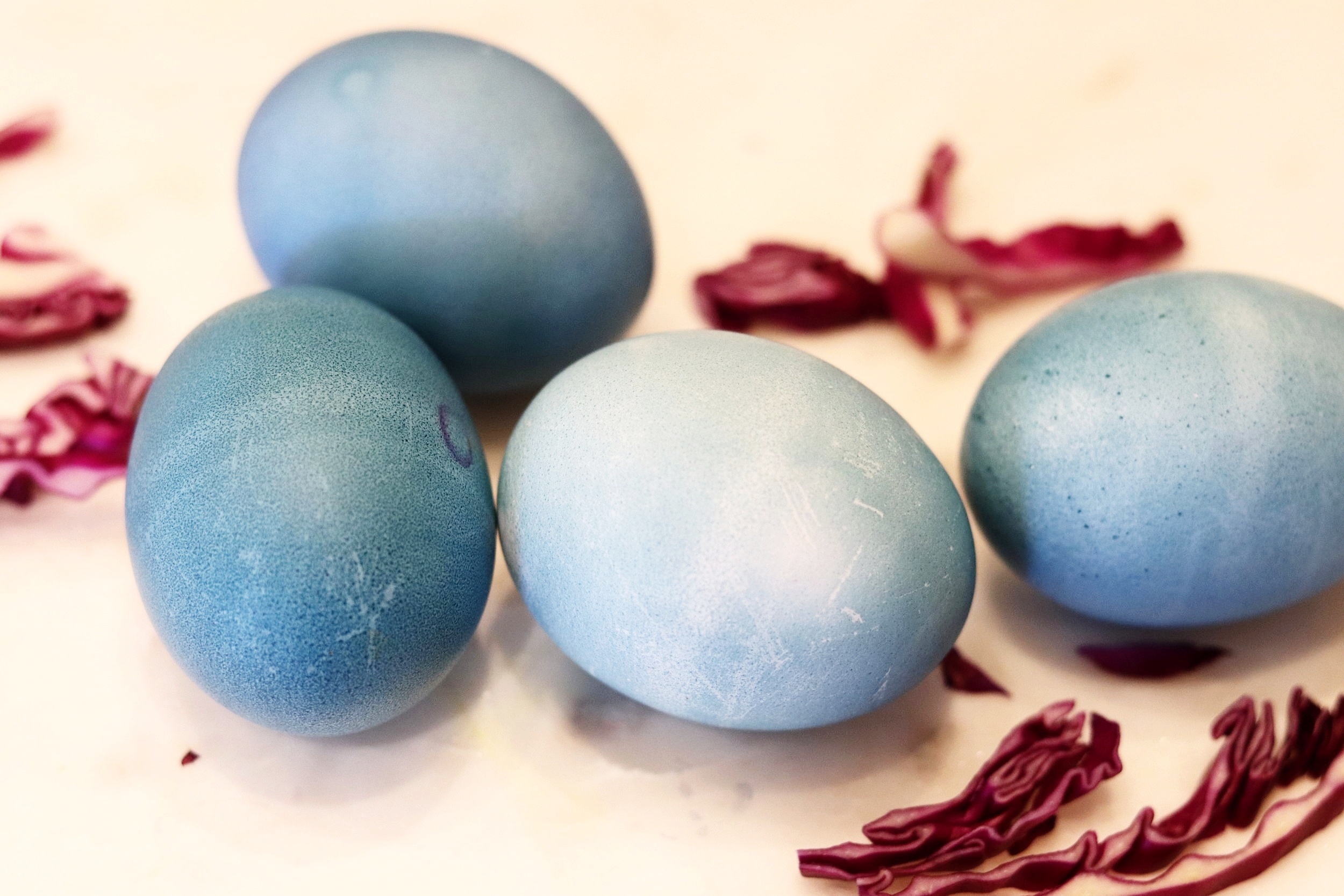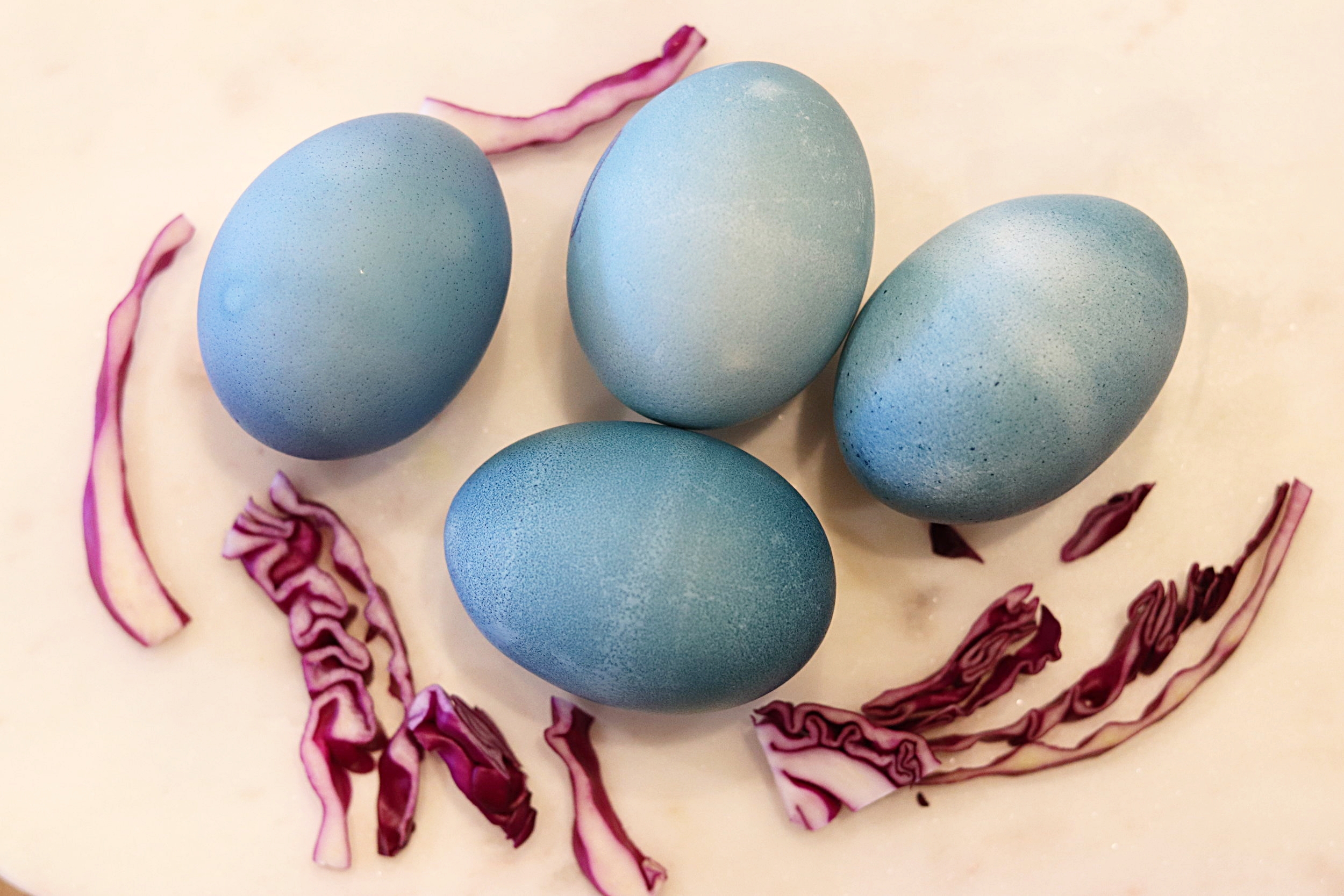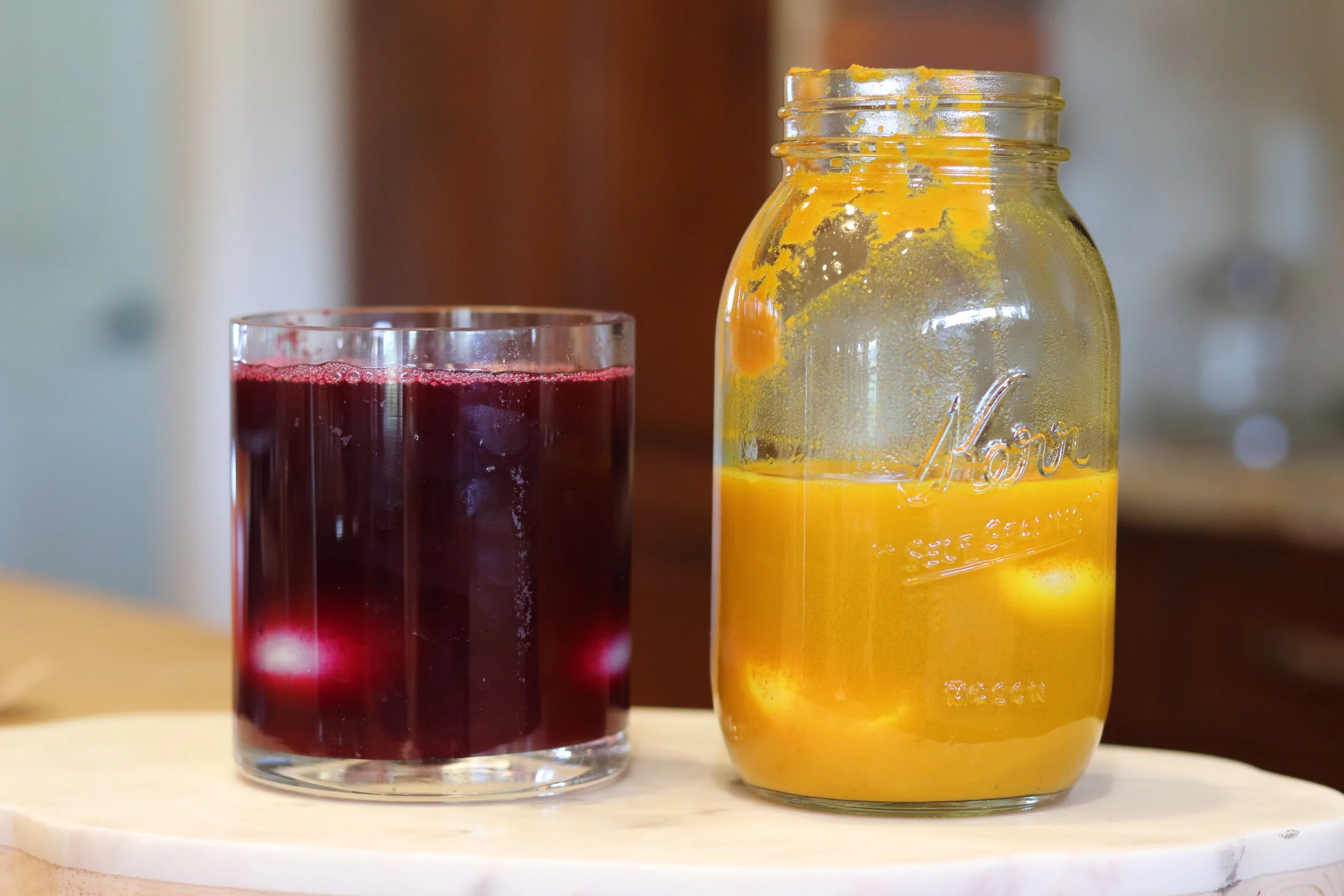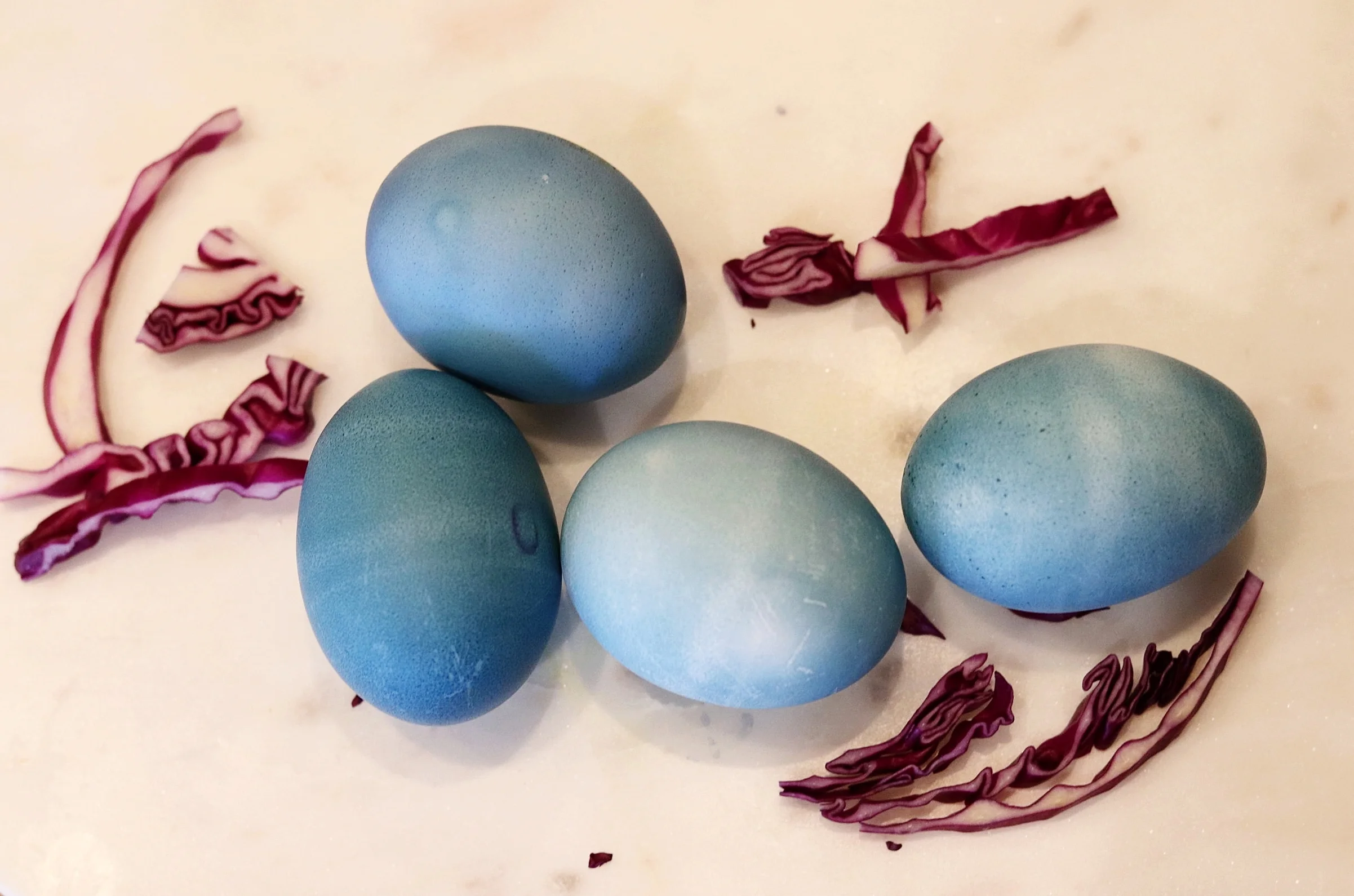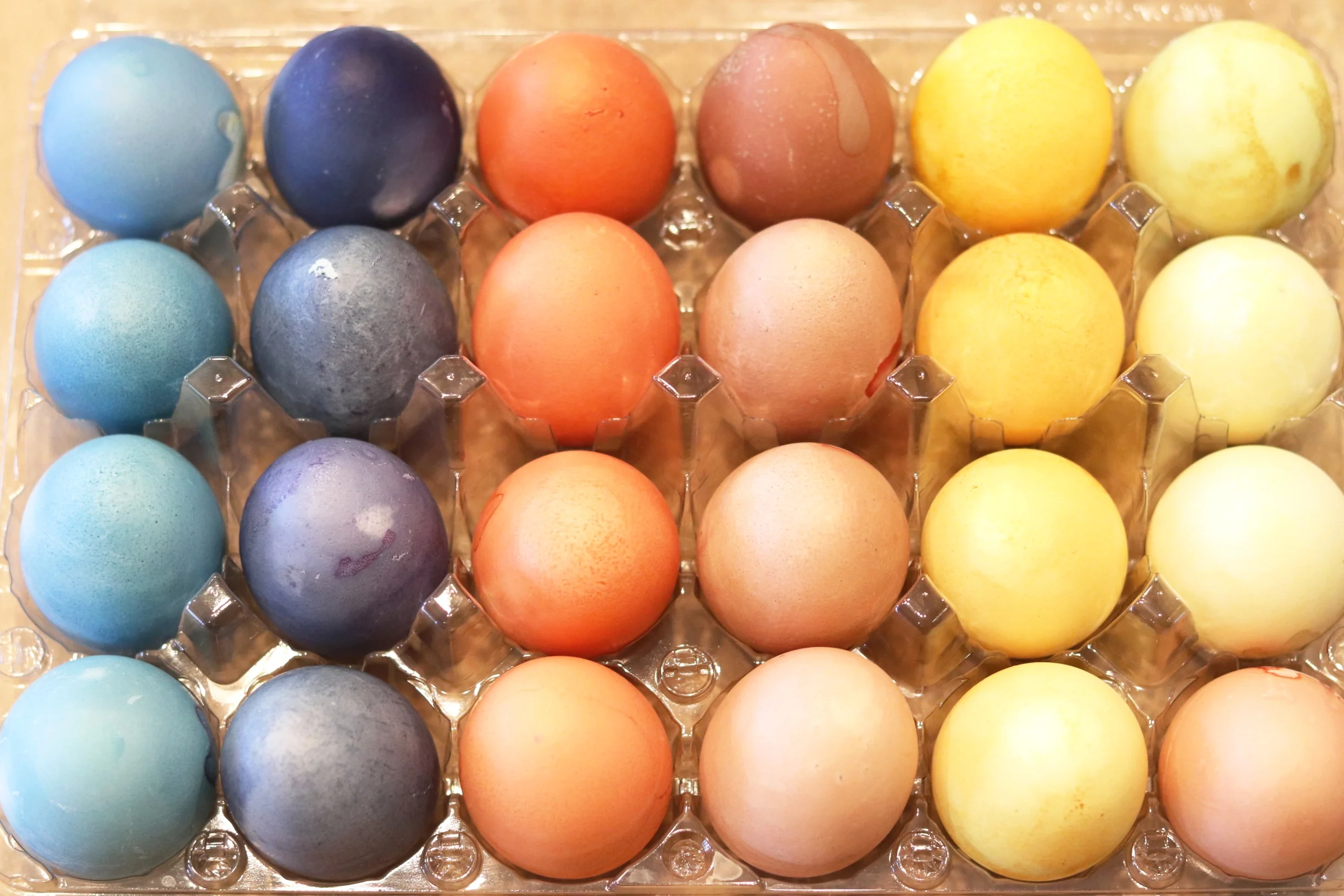make-it monday: diy naturally dyed easter eggs...
Dyeing Easter eggs is a longstanding tradition in my home, and this year I thought I’d put an unexpected twist on the expected egg dying phenomena. Instead of dunking eggs into food dye and vinegar, I've been toying with the idea of naturally dyed Easter eggs, with... well what else? Objects from nature! I prefer most things in my life to be natural rather than artificial (think: food, makeup & even cleaning supplies), so this creative idea caught my eye. I thought this would not only be a fun way to teach the kids about color and how it can be made, but how we can utilize the objects around us in nature for multiple purposes! It’s a unique twist on your traditionally dyed Easter eggs, only using foods, spices, and plants. In fact, it turned into a bit of a science experiment. We found ourselves mixing different dyes, letting some eggs soak longer than others, and even discovering how to create a varying shades.
Take a peek below to see all the steps we used to make our naturally dyed Easter eggs…
naturally dyed easter eggs
what you'll need
- eggs
- 1 cup white onion
- 2 tbs ground tumeric
- 1 cup purple cabbage
- 1 cup Whole carrots stems
- 2 cup blueberries
- about 1 cup ground beets
- optional things to try (red onion, saffron, black coffee)
how to
1. Hard boil eggs in water. Cool completely.
2. In separate saucepans, add each ingredient to 2 cups of water and boil for about 15 minutes. Let cool to about room temp. (This speeds up the dyeing process and makes the water a more saturated color.)
3. Soak eggs in each cup of water to dye (like you would normally dye eggs). We did several versions of each egg, varying the soaking time. For example, I had three blueberry eggs soaking and took one egg out at an hour, one egg out at two hours, and one egg out at three hours - that way we were able to get several different levels of saturation and see how the blueberry dye could become more potent over time.
4. Take your eggs out of the dye when they’ve reached the desired color.
Keep scrolling to see how each egg turned out..
beets
red cabbage
carrot stems
blueberries
ground tumeric
What natural foods & spices will you use to dye your eggs?
XO Kassy

